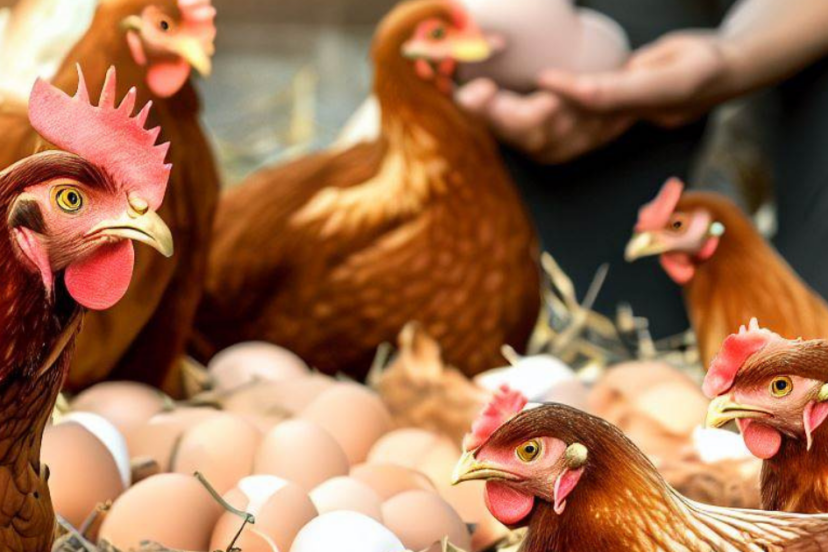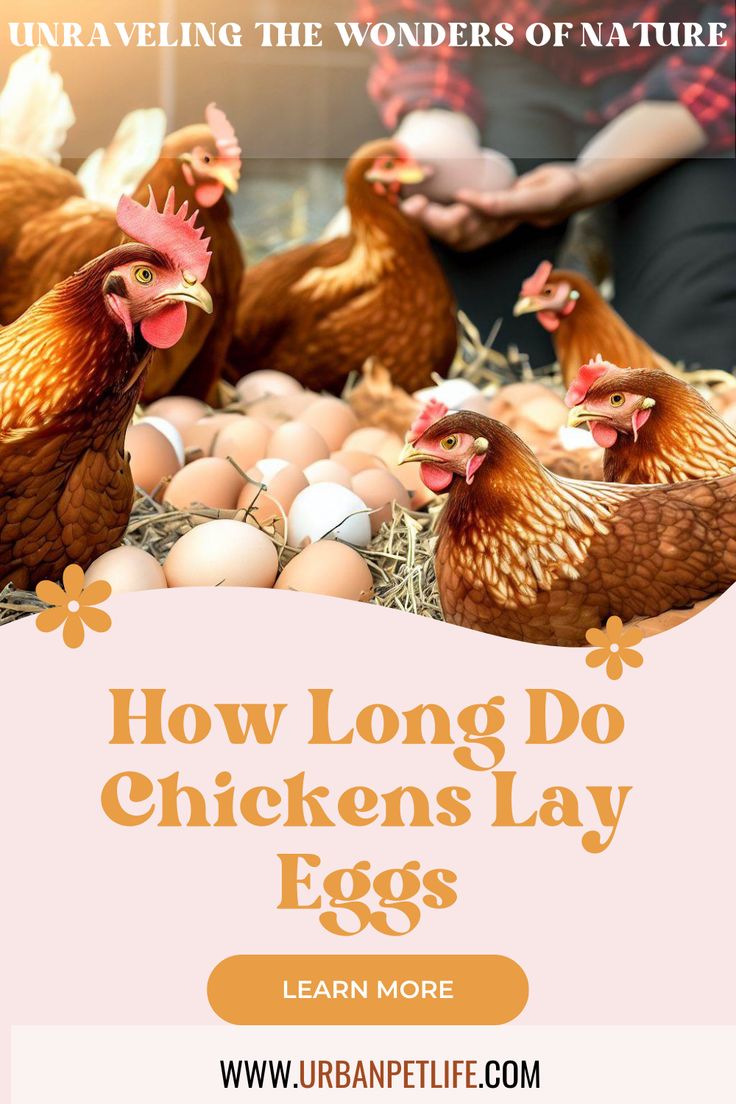How Long Do Chickens Lay Eggs: Unraveling the Wonders of Nature
If you’ve ever wondered about the egg-laying capabilities of our feathery friends, you’re in the right place. In this article, we’ll explore the fascinating topic of how long chickens lay eggs and provide you with helpful suggestions and reasons for our recommendations. So, let’s dive right in!
Understanding the Egg-Laying Process
Before we discuss the duration of egg-laying, let’s first understand the intricate process itself. Chickens go through a remarkable lifecycle, starting from hatching and growing into adulthood. However, egg production doesn’t begin immediately.
Chickens typically start laying eggs around five to six months of age, although this can vary depending on the breed. Some breeds may start laying as early as four months, while others might take up to seven months. It’s important to note that factors like breed, genetics, and environmental conditions play a role in the timing of egg production.
Duration of Chicken Egg Production
Now, let’s address the burning question: how long do chickens lay eggs? On average, a healthy and well-cared-for chicken will lay eggs for approximately two to three years. However, it’s crucial to understand that this is a general estimate, and individual variations exist.
Different chicken breeds have varying egg-laying capabilities. Some breeds are known for their exceptional egg production, often surpassing the average duration. Conversely, certain heritage breeds may have a shorter egg-laying span. When choosing your flock, it’s essential to consider your specific goals and preferences. Some good egg laying breeds are Green Egger and the Blue Plymouth Rock Chickens.
Factors That Influence Egg Production
Several Factors Affecting Egg Production can impact the duration of egg-laying in chickens. First and foremost, age plays a significant role. As chickens age, their egg production tends to decline gradually. Nutritional factors also play a vital role in maintaining consistent egg production. Providing a balanced diet rich in protein, calcium, and other essential nutrients is essential for optimal egg-laying.
Additionally, environmental factors such as lighting, temperature, and ventilation can affect egg production. Chickens thrive in comfortable environments with ample natural light, appropriate temperatures, and good air circulation. Stressors like extreme weather conditions, predators, or overcrowding can disrupt egg-laying patterns.
The overall health and well-being of the chickens are paramount. Regular veterinary check-ups, vaccination protocols, and preventive measures against common poultry diseases can help maintain their egg-laying capabilities. A healthy and happy chicken is more likely to lay eggs consistently.
Signs of Declining Egg Production
As the egg-laying period nears its end, there are signs to look out for. Reduced egg production is a natural occurrence as chickens age. You may notice fewer eggs being laid or longer intervals between each egg. Additionally, the size and quality of the eggs may diminish over time.
It’s important to manage your chickens during this transition period. Providing proper nutrition, including calcium supplements, can help support the remaining egg production. Ensuring a stress-free environment, ample rest, and access to fresh water are essential to maintain their overall well-being.
Strategies to Maximize Egg Production
While the egg-laying period is finite, there are strategies you can employ to maximize egg production during this time. Here are some helpful tips:
Optimal nutrition for egg-laying chickens: Feed your chickens a well-balanced diet that includes a high-quality layer feed. Supplement their diet with fresh greens, vegetables, and occasional protein sources like mealworms.
Providing suitable housing and nesting boxes: Ensure your chickens have comfortable and clean housing with enough space to move around. Provide well-designed nesting boxes where they can lay their eggs in peace and privacy.
Ensuring a stress-free environment: Minimize potential stressors by maintaining a calm and predator-free environment. Reduce noise levels, avoid sudden changes in routines, and provide opportunities for exercise and natural behaviors.
Regular health check-ups and preventive measures: Schedule regular veterinary check-ups to monitor your chickens’ health. Vaccinations, deworming, and preventive measures against parasites can help keep them healthy and minimize disruptions in egg-laying.
Remember, each chicken is unique, and factors such as breed, genetics, and individual health can influence their egg-laying capabilities. Observing and understanding your flock’s behavior will help you provide the best care possible.
Conclusion
In conclusion, chickens are remarkable creatures that bring joy and delicious eggs to our lives. Understanding the egg-laying process, the average duration of egg production, and the factors that influence it will help you make informed decisions as a chicken enthusiast. By providing optimal nutrition, suitable housing, a stress-free environment, and regular health care, you can maximize the egg-laying potential of your flock.
Remember, as the egg-laying period naturally comes to an end, continue to provide your chickens with the care and attention they deserve. They have contributed to your life with their eggs, and it’s important to reciprocate by ensuring their well-being and happiness.
FAQs
1. Can chickens lay eggs for their entire life?
Chickens have a finite egg-laying period, typically lasting around two to three years. After that, egg production gradually decreases.
2. Is it normal for egg production to decrease over time?
Yes, it’s normal for egg production to decline as chickens age. Factors like breed, health, and environmental conditions can affect the rate of decline.
3. How can I extend the egg-laying period of my chickens?
Providing optimal nutrition, a stress-free environment, and regular veterinary care can help support and maximize egg production. However, it’s important to remember that the egg-laying period is ultimately determined by individual factors.
4. What happens when chickens stop laying eggs?
When chickens stop laying eggs, they transition into a phase where their energy is redirected towards other aspects of their well-being, such as molting and overall health maintenance. They continue to be wonderful companions and contribute to the garden or backyard with pest control and fertilizer.
5. Are there any natural ways to boost egg production?
While you can’t extend the egg-laying period indefinitely, certain practices can support optimal egg production. Providing a balanced diet, ensuring access to clean water, and creating a stress-free environment are natural ways to promote consistent egg production.
Remember, observing and understanding the needs of your chickens is essential in providing the best care possible. Enjoy the journey of raising chickens and appreciate the eggs they bless us with during their egg-laying years.
Happy chicken keeping!
*We may earn a commission from purchases made through our links, at no cost to you. This does not affect our product recommendations. Please see our disclosure to learn more.





